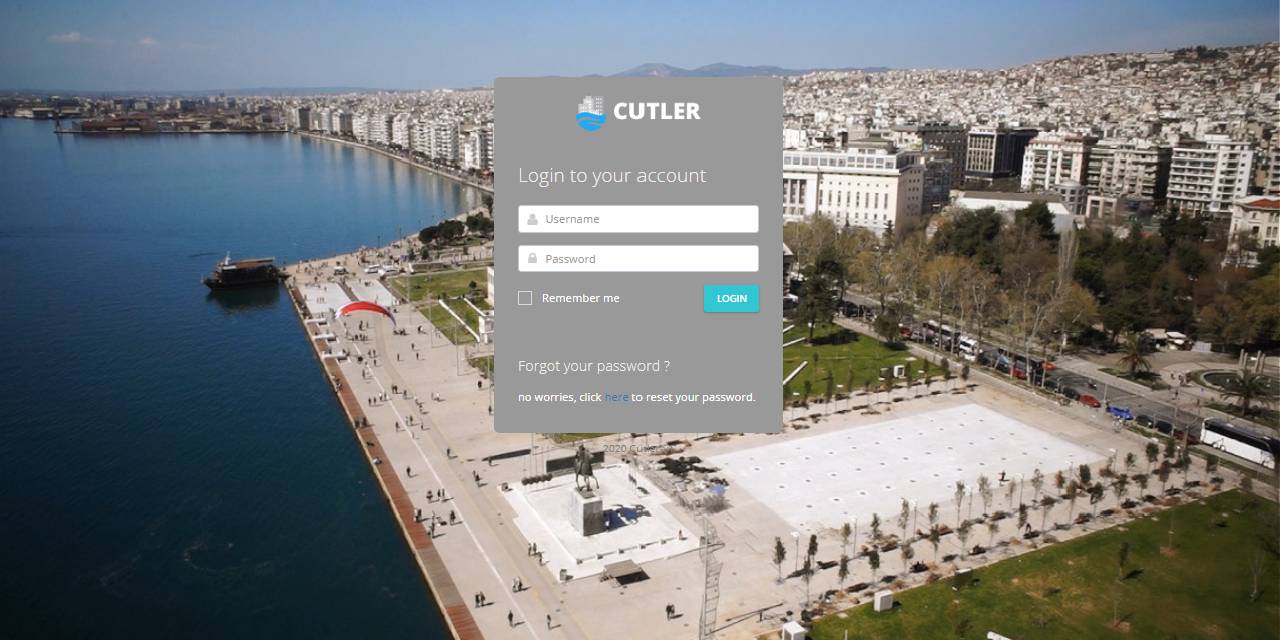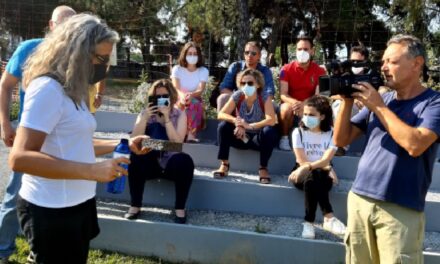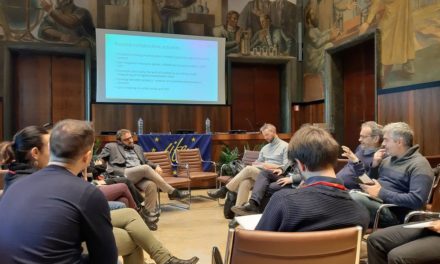The Municipality of Thessaloniki in the framework of the implementation of its strategic and Operational Planning and its Urban Resiliency Strategy is a key partner in a series of related projects among them CUTLER and LIFE ASTI. The project “CUTLER – Coastal Urban Development through the Lenses of Resiliency”, funded under the Horizon 2020 Programme, has a total budget of 5,080,125.00 € and sixteen partners from Greece, Germany, Turkey, Belgium, Finland, Ireland and Italy.
CUTLER aims to establish a sustainable solution for incorporating big data and data science in the policy-making process of pubic administrations. To this end, an innovative platform has been developed that helps policy makers to easily design, implement and monitor urban development policies for coastal cities, based on the wealth of data generated by and in the cities on a daily basis. Using this platform, CUTLER attempts to effectively address several challenges and thus enable more efficient, accurate, consistent and transparent policy making that effectively balances between local economic growth, environmental protection and community well-being.
CUTLER sets out to reuse established big data sensing infrastructures to enable evidence-driven policy making, aiming at coastal urban development. The proposed solution is implemented and assessed in the context of five pilots in five waterfront cities surrounded by different water bodies: Thessaloniki (Greece), Antalya (Turkey), Antwerp (Belgium), Cork (Ireland) and Vicenza (Italy). In the context of these five city pilots, the CUTLER platform is used to design, monitor and assess different policy measures aiming at either exploiting the beauty of the waterfront to boost the local economy and offer recreational activities to citizens and visitors or protecting the city against water-related threats like floods.
Thessaloniki’s policy case deals with optimizing a controlled parking system near the waterfront also considering its interaction with a sea transport system: In the pilot of Thessaloniki, policy planners use the CUTLER platform to optimize, monitor, and evaluate a new controlled parking system at the waterfront area facing Thermaikos Bay. The Municipality of Thessaloniki is a densely inhabited area and most of its districts have more than one use, i.e. they are not strictly residential but also include professional spaces, hotels, shops, entertainment areas, hospitals, etc. As a result, people move to or out of this area during the whole day, creating a high demand for public parking space. Since November 2017, a new controlled parking system has been introduced in some municipal districts and the available parking space has been divided into white and blue sectors, destined for the parking needs of visitors and permanent residents respectively. The system is supervised by the Municipal Police that performs daily patrols in the city streets, scanning car plates and issuing tickets in case of illegal parking by either visitors or residents. The Municipality of Thessaloniki uses the CUTLER platform as a policy design tool that helps them to optimize the controlled parking system by means of: redistribution of parking spots for visitors and residents, aiming to reduce the number of fines for illegal parking and increase citizen satisfaction; evaluation of the environmental impact based on real-time sensor data, and recommendation of policy changes for further improvements; evaluation of the economic impact and introduction of moderations in the financial policy aiming to increase profits; support to the Municipal Police in their supervision duties (e.g. redesigning patrols based on parking sector occupancy and illegal parking patterns extracted by analysing the data available from the e-parking application). In addition, the interaction of the controlled parking system with a future sea transport system is examined, trying to model the impact of sea transport in city traffic and the available parking space but also make estimations about the sustainability of such a system.
As part of the project’s educational activities, the CUTLER consortium organizes a series of 8 webinars in October-December 2020 to educate interested stakeholders (data scientists, developers of smart city apps, law scientists and policy makers with an interest on big data exploitation) on the project’s scientific background and research outcomes. Relative info can be found here.
For more info you can follow the project on its social media platforms (facebook, twitter, LinkedIn).






